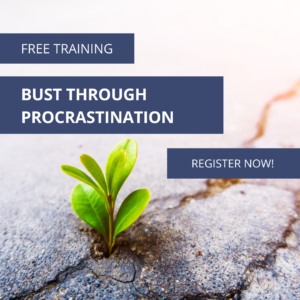Do you remember earning your first dollar?
Maybe it was for doing chores around the house, or mowing a neighbor’s lawn, or baby-sitting. However you did it, earning your own money is an exhilarating rite of passage for a kid.
It’s soon followed by another important rite of passage: Realizing that money is a finite resource and has to be used thoughtfully. Once you spent that money on candy or a toy, it was gone until you earned more. It’s an early lesson in the challenges and importance of budgeting.
Everyone has a budget. Even the most successful billionaires on the planet have budgets. None of us has unlimited resources, and budgeting is all about balancing what’s coming in with what’s going out. Every time you make a withdrawal from your bank account, you have fewer resources to spend on something else. When you consistently withdraw more than you deposit, your resources dwindle until you can’t afford the things that you need or want.
Your Body Has a Budget Too.
Neuroscientist Lisa Feldman Barrett coined the phrase “body budget” in her book “How Emotions are Made: The Secret Life of the Brain,” and it’s a great metaphor for thinking about self-care and time management. The idea is that your body is like a bank account. Making too many withdrawals and too few deposits throws your budget off balance, and possibly even bankrupts you.
Experiencing stress, sleeping too little, eating poorly, being dehydrated, having conflict with others and experiencing traumatic events are all examples of withdrawals. They zap the body’s resources so you don’t have the focus and energy you need to get everything done at work and at home.
Getting adequate sleep, eating nutritious food, drinking enough water, exercising, spending quality time with loved ones and taking time off to simply destress are all like deposits in your body bank. They replenish your resources so your body budget doesn’t slide into a deficit. When that happens, your physical and mental health suffer. You burn out. You might even get sick or have chronic illnesses flare up. And you’ll struggle with time management, which may mean falling behind at work, which only causes more stress and sleep deprivation… it’s a vicious cycle.
When your body budget is overdrawn, time management and productivity suffer.
If you’re really struggling with time management as we look ahead to another COVID winter, you’re not alone. As the world has continued to open up, a lot of people are looking at a calendar that has returned to a pre-pandemic level of busy. Now, you’re back to racing from one thing to the next. You’re navigating crowds again, trying to coordinate around the busy schedules of your family members, dealing with traffic and looking ahead to a jam-packed holiday season—all while trying to keep your business running and still dealing with COVID precautions.
It’s exhausting. It was exhausting before COVID, but it might be even more exhausting now if you feel out of practice with being out in the world. There’s also so much conflict and tension around us, which might be draining your energy or adding to your stress.
It’s hard to get the important stuff done, let alone make progress on your long-term goals, when you’re exhausted and depleted. Keeping your body budget balanced requires intentional effort. It’s about making sure you’re constantly replenishing your resources, and allocating those resources in a way that aligns with your larger goals.
Body Budgeting for Better Time Management: Three Tips to Try
Want to create the work/life balance you crave? It starts with balancing your body budget. Try these three tips for better time management.
- Keep the basics in place. As your schedule gets busy and you start feeling overwhelmed, your routine may start to slip. Suddenly you’re skipping meals, missing out on family time and working through the weekend to catch up. Before things get any busier, make sure you start each week with a weekly plan that carves out plenty of time for your basic needs, like adequate time to sleep, eat, exercise and unwind.
- Be conscious before stepping back on the treadmill. Knowing that you have a limited store of resources, do you want to spend them on the same things you used to spend them on pre-pandemic? Are there things you’re saying “yes” to simply because you’ve always said yes to them before? Assess your priorities to make sure the things you’re committing to are still aligned with those priorities.
- Reflect on what, specifically, your body needs to feel grounded and fueled. Be careful what you copy. Because we’re all wired differently, someone else’s diet plan or sleep schedule or exercise routine isn’t necessarily right for you. Tune out the body-related messaging we all get from the media about how to lose weight or look younger, and look inward to identify the habits and practices that help you truly feel your best. Maybe you feel your most productive and energized when you get exactly seven hours of sleep, or when you do yoga or meditate during your lunch hour. Get really clear about what you need so you can be sure to build those things into your weekly plan.
And Keep Leaning on Your Support System!
The last few years have been filled with challenges that have been made more difficult because we’ve had to be isolated from one another. Reaching out for support is so important, especially when you feel like you’re alone in your struggles. I promise that you’re not.
Join me, and a community of other professionals struggling with the same things you’re struggling with, for Time Matters Boot Camp 90-Day Virtual Program. My online productivity and time management training is designed to help busy professionals defeat the challenges that hold them back. Join now and learn how to take control of your time and goals in a way that works for your brain and your life.
Are you ready to take action to bring your work and personal life into balance? I hope you’ll join me for Time Matters Boot Camp 90-Day Virtual Program. Click here for details and registration.
Gratefully,
Sarah
- Time Management Strategies to Help You Land the Big Clients You Want - April 17, 2024
- Stress Management for a Productive Spring: Are You “Normal”? - April 4, 2024
- 3 Things Realtors Can Control in a Busy Spring Real Estate Market - March 15, 2024



